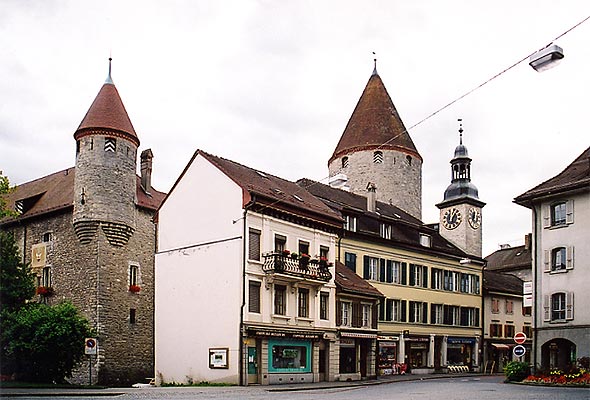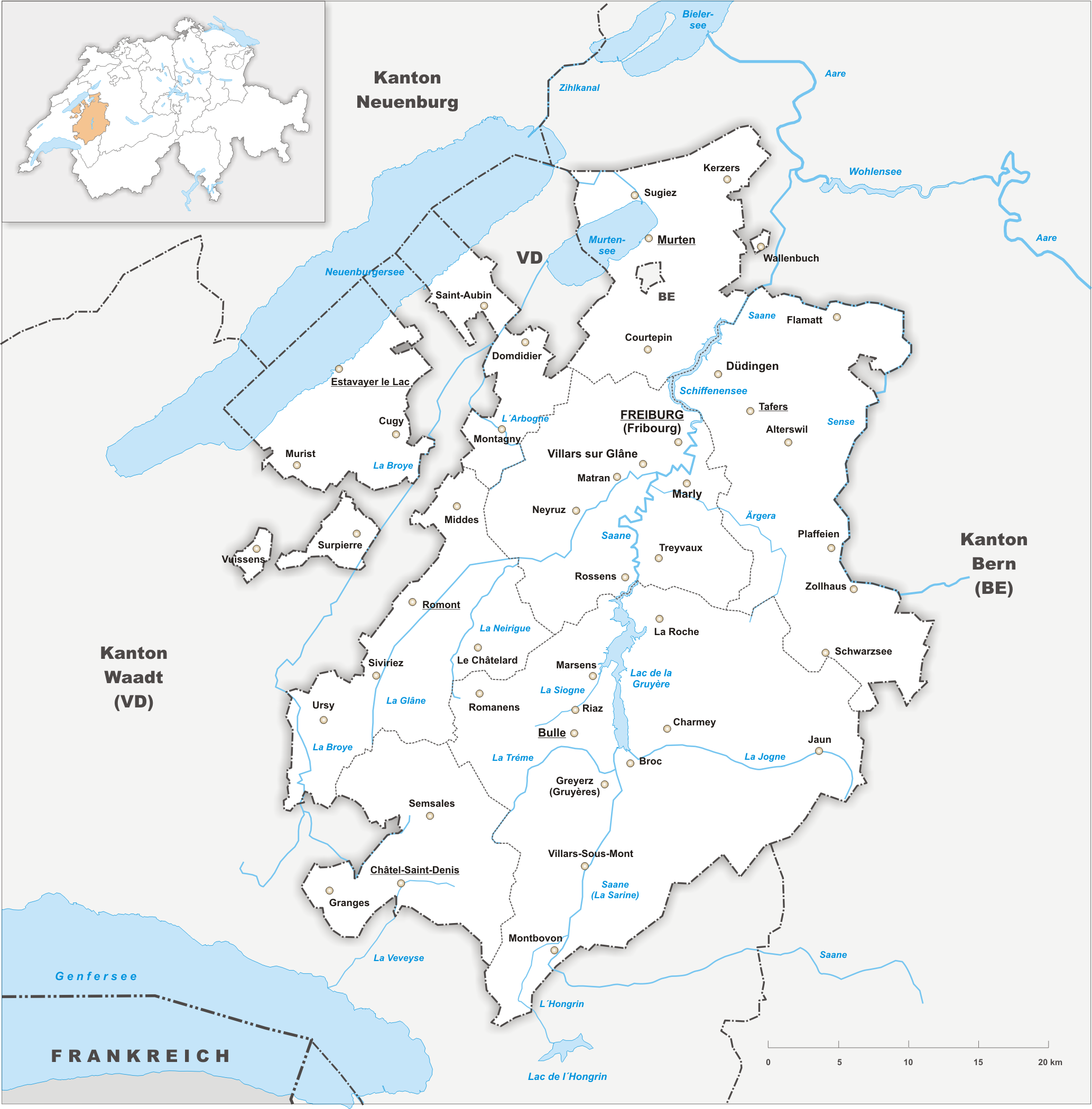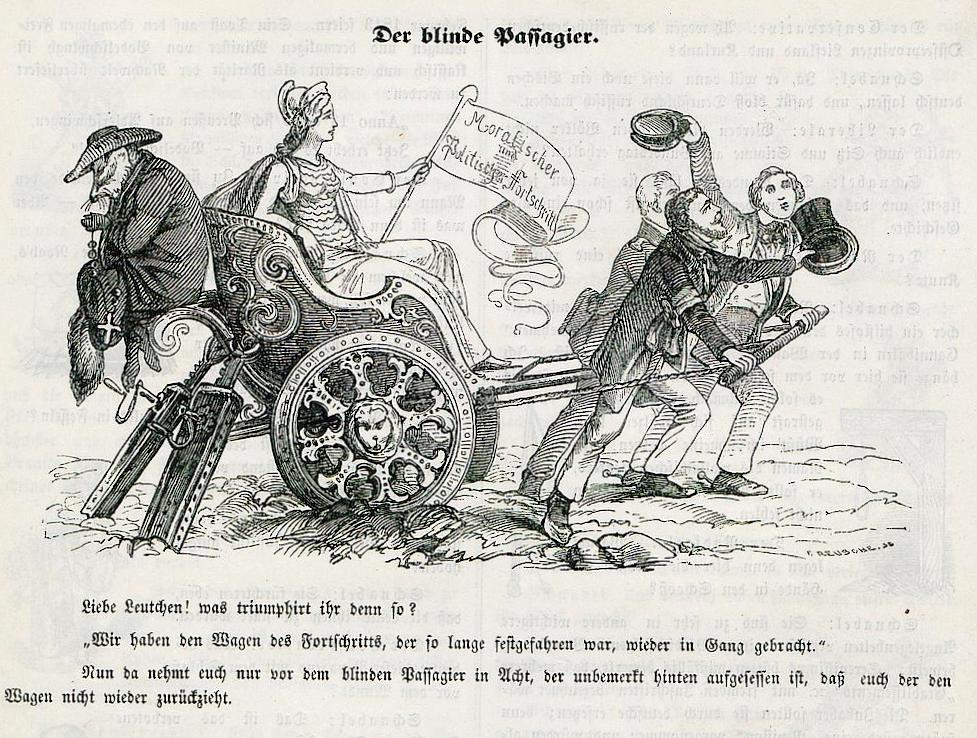|
La Gruyère (newspaper)
' () is a Swiss French-language thrice weekly newspaper that publishes out of Bulle in the Canton of Fribourg. It was founded by Simon Castella and Léon Glasson as an organ for the political opposition, and afterwards completely owned by the Glasson family. In 1976, the family sold most of their shares to St. Paul SA, the publisher of rival newspaper '' La Liberté.'' History was founded in 1882 by, among others, Simon Castella and Léon Glasson. Its first issue was printed 7 October 1882. It was founded in the Kulturkampf (a conflict between the church and state) period, and originally was founded as a party organ of the radical democratic political opposition. The paper was created in reaction to another paper, , which expressed the ideas of the in-power Conservative Party. After 1903, the Glasson family was the sole owner of the paper. It was initially a weekly, published on Saturdays. It then became a biweekly in December 1888. After 1928, it published three times a w ... [...More Info...] [...Related Items...] OR: [Wikipedia] [Google] [Baidu] |
Bulle
Bulle (; ) is a Municipalities of Switzerland, municipality in the district of Gruyère (district), Gruyère in the Cantons of Switzerland, canton of Fribourg (canton), Fribourg in Switzerland. In January 2006 Bulle incorporated the formerly independent municipality of La Tour-de-Trême. History Ancient times Bulle is first mentioned in the 9th century as ''Butulum''. In 1200 it was mentioned as ''Bollo''. The municipality was formerly known by its German name ''Boll''; however, that name is no longer used. Very little is known about the early history of the Bulle area. In 1995, a large tumulus, grave mound from the early Hallstatt culture, Hallstatt period was partially excavated. The grave mound lies about from the hill on which the church was later built. Middle ages During the Early Middle Ages it was the home of a parish church that covered a large parish. This Church of St. Eusebius was probably built in the 6th or 7th century by the Bishop of Lausanne. The church is ... [...More Info...] [...Related Items...] OR: [Wikipedia] [Google] [Baidu] |
Canton Of Fribourg
The canton of Fribourg, also canton of Freiburg, is located in western Switzerland. The canton is bilingual, with French spoken by more than two thirds of the citizens and German by a little more than a quarter. Both are official languages in the canton. The canton takes its name from its capital city of Fribourg. History On the shores of Lake Neuchâtel and Lake Morat significant traces of prehistoric settlements have been unearthed. The canton of Fribourg joined the Swiss Confederation in 1481. The area is made up of lands acquired by the capital Fribourg. The present extent was reached in 1803 when Murten (Morat) was acquired. The canton of Fribourg joined the separatist league of Catholic cantons in 1846 ( Sonderbund). The following year, its troops surrendered to the federal army. Geography The canton is bounded to the west by Lake Neuchâtel, to the west and the south by the canton of Vaud, and to the east by the canton of Bern. The canton includes two enclaves with ... [...More Info...] [...Related Items...] OR: [Wikipedia] [Google] [Baidu] |
La Liberté (Switzerland)
''La Liberté'' (, ) is a Swiss French-language daily newspaper based in Fribourg founded in 1871 by Catholic priest . History ''La Liberté'' was founded 1871 in Fribourg by Catholic priest . It was printed by the , (St. Paul SA) an organization founded by the Sisters of Saint-Paul to promote apostolate press. Created in the time of the Kulturkampf (a struggle between government and church), its purpose was to defend conservative Catholic ideas, particularly from the left wing and liberal press. Its initial subtitle was . Following World War II, it served to promote Francophone Catholic ideas. Until 1965, most of its editorial staff was the religious, but following 1970 on its editor in chief promoted more liberal and critical ideas, resulting in its popularity spreading outside the canton. It is the only Francophone daily paper in Fribourg. In 2006, its circulation was 38,600. St-Paul closed its printing sector in 2014, following the loss its main outside client, the '. As ... [...More Info...] [...Related Items...] OR: [Wikipedia] [Google] [Baidu] |
Kulturkampf
In the history of Germany, the ''Kulturkampf'' (Cultural Struggle) was the seven-year political conflict (1871–1878) between the Catholic Church in Germany led by Pope Pius IX and the Kingdom of Prussia led by chancellor Otto von Bismarck. The Prussian church-and-state political conflict was about the church's direct control over both education and ecclesiastical appointments in the Prussian kingdom as a Roman Catholic nation and country. Moreover, when compared to other church-and-state conflicts about political culture, the ''Kulturkampf'' of Prussia also featured anti-Polish sentiment. In modern political usage, the German term ''Kulturkampf'' describes any conflict (political, ideological, or social) between the secular government and the religious authorities of a society. The term also describes the great and small culture wars among political factions who hold deeply opposing values and beliefs within a nation, a community, and a cultural group. Background Europe a ... [...More Info...] [...Related Items...] OR: [Wikipedia] [Google] [Baidu] |
Le Temps
' (, ) is a Swiss French-language daily newspaper published in Berliner format in Geneva by Le Temps SA. The paper was launched in 1998, formed out of the merger of two other newspapers, and (the former being a merger of two other papers), as those papers were facing financial problems. It is the sole nationwide French-language non-specialised daily newspaper of Switzerland. Since 2021, it has been owned by Fondation Aventinus, a not-for-profit organisation. is considered a newspaper of record in Switzerland. History Predecessor papers The paper's three predecessors were the (founded 1798), the (founded 1826), and (founded 1991). The ' and the ' were merged in 1991 as the , which was partially motivated by those paper's financial issues as well as the impending creation of .' Due to financial issues, it was proposed that the ' and merge in 1996. The editorial staff of both papers met, but this was declined by publisher Edipresse as it would have resulted in lay ... [...More Info...] [...Related Items...] OR: [Wikipedia] [Google] [Baidu] |
1882 Establishments In Switzerland
Year 188 (CLXXXVIII) was a leap year starting on Monday of the Julian calendar. At the time, it was known in the Roman Empire as the Year of the Consulship of Fuscianus and Silanus (or, less frequently, year 941 ''Ab urbe condita''). The denomination 188 for this year has been used since the early medieval period, when the Anno Domini calendar era became the prevalent method in Europe for naming years. Events By place Roman Empire * Publius Helvius Pertinax becomes pro-consul of Africa from 188 to 189. Japan * Queen Himiko (or Shingi Waō) begins her reign in Japan (until 248). Births * April 4 – Caracalla (or Antoninus), Roman emperor (d. 217) * Lu Ji (or Gongji), Chinese official and politician (d. 219) * Sun Shao, Chinese general of the Eastern Wu state (d. 241) Deaths * March 17 – Julian, pope and patriarch of Alexandria * Fa Zhen (or Gaoqing), Chinese scholar (b. AD 100) * Lucius Antistius Burrus, Roman politician (executed) * Ma Xiang, Chin ... [...More Info...] [...Related Items...] OR: [Wikipedia] [Google] [Baidu] |
French-language Newspapers Published In Switzerland
French ( or ) is a Romance language of the Indo-European family. Like all other Romance languages, it descended from the Vulgar Latin of the Roman Empire. French evolved from Northern Old Gallo-Romance, a descendant of the Latin spoken in Northern Gaul. Its closest relatives are the other langues d'oïl—languages historically spoken in northern France and in southern Belgium, which French (Francien) largely supplanted. It was also influenced by native Celtic languages of Northern Roman Gaul and by the Germanic Frankish language of the post-Roman Frankish invaders. As a result of French and Belgian colonialism from the 16th century onward, it was introduced to new territories in the Americas, Africa, and Asia, and numerous French-based creole languages, most notably Haitian Creole, were established. A French-speaking person or nation may be referred to as Francophone in both English and French. French is an official language in 26 countries, as well as one of the most ... [...More Info...] [...Related Items...] OR: [Wikipedia] [Google] [Baidu] |
Newspapers Established In 1882
A newspaper is a Periodical literature, periodical publication containing written News, information about current events and is often typed in black ink with a white or gray background. Newspapers can cover a wide variety of fields such as politics, business, sports, art, and science. They often include materials such as opinion columns, weather forecasts, reviews of local services, Obituary, obituaries, birth notices, crosswords, editorial cartoons, comic strips, and advice columns. Most newspapers are businesses, and they pay their expenses with a mixture of Subscription business model, subscription revenue, Newsagent's shop, newsstand sales, and advertising revenue. The journalism organizations that publish newspapers are themselves often Metonymy, metonymically called newspapers. Newspapers have traditionally been published Printing, in print (usually on cheap, low-grade paper called newsprint). However, today most newspapers are also Electronic publishing, published on webs ... [...More Info...] [...Related Items...] OR: [Wikipedia] [Google] [Baidu] |




